| Written by Paul D. Race for Family Christmas OnlineTM |
Who Speaks for Christmas - from Family Christmas OnlineTMLet me start this article by asserting that I love Christmas. As a Christian, I cherish taking time every year to celebrate the birth of our Savior. As an American baby boomer, I have a sentimental attachment (and whole web sites devoted) to many of the traditions with which our generation (and previous generations) grew up. But I have to point out two historical facts about Christmas, which certain people who pretend to have "protective" feelings about Christmas conveniently overlook every season:
In other words, it would be nice to think that Christmas was always a religious feast day cherished as a time to celebrate the First Coming of Christ and for families to come together. If thatís how you think of Christmas, good for you - I think itís the best way to see the holiday. But itís not the only view, and itís not even the historically dominant view. Sadly, that doesnít keep certain self-appointed guardians of the "true meaning of Christmas" from trying to make life miserable for everyone who disagrees with their definition. But - to quote an old saying - who died and left them in charge? Christmas Used to Belong to EverybodyWhen I was a child, everyone in our community "owned" Christmas, even if we didnít all view or celebrate the holiday the same way. On the afternoon of Christmas Eve, our family would often go Christmas caroling - stopping at the houses of just about anyone we knew in our small town. Then we would go to "Midnight Mass," where we sang Adeste Fideles and other Christmas carols in Latin. Then we would return home to change into our pajamas and pray a rosary in front of the nativity display. The only light in the room - an amber 9-volt bulb mounted in a star-shaped reflector in the back of the stable - cast a warm glow over our family prayers. Weíd sing "Silent Night" and turn in with "good-nights" all around. The next day, weíd say Grace over breakfast, and spend the next several hours unwrapping too many presents. Then there would be visits to the cousins or from the cousins, depending on whose turn it was to host the meal. But suffice it to say, my earliest - and many of my fondest - Christmas memories reflect the best that mid-20th-century American Catholicism had to offer.We were vaguely aware that on Christmas Eve the Lutherans next door to us would walk up the hill at dusk to a service that included devotional remarks from the pastor and Christmas hymns in English and German, culminating in a candle-lit rendition of Stille Nacht. As I got a bit older I learned that the family across the street would make a point of getting to their Baptist church on the Sunday before Christmas, but reserved Christmas Eve and Christmas day for multiple get-togethers with their extended family. Other families in our small town avoided church altogether, but put just as much effort into decorating for Christmas as we did, spent just as much on presents, and spent just as much time with their families. Still others did nothing at all for Christmas, except perhaps to complain if a Christmas parade or early store closing on Christmas Eve inconvenienced them. But they didn't mind if we celebrated. Sometimes the whole community would come together, for things like a Christmas play at the elementary school, or a kids' Christmas party - Santa and all - at the firehouse. All told, no matter what our individual beliefs and practices, Christmas was a time of community celebration, generosity, cheer, and good will for relatives, friends, and strangers alike. No one, from the most devout to the least observant, thought they had a right to tell anyone else how (or whether) to celebrate Christmas. The "Xmas" ControversySkip forward a few years to the first big "Christmas controversy" of my early life. In the early 1960s, some self-appointed guardians of Christmas started taking exception to the many signs, cards and advertisements that abbreviated the word "Christmas" to "Xmas." Ironically, this abbreviation, that started in the church, since the Greek character Chi (which looks like an X to us) has represented the name "Christ" since the beginning of Christianity. But of course people who deliberately ignore the history of their own professed religion couldnít be expected to know that.As a person who has tried to squeeze the word "Christmas" onto hundreds of page titles, I can tell you that the word is a typesetter's nightmare. As a lifetime student of history and a sometime student of Greek, I see nothing wrong with using the abbreviation Xmas once in a while, but I avoid doing so where it might be seen by people who get all of their cultural context and religious convictions from talk radio. Apparently most other people have been taking the same precautions, because you hardly ever see "Xmas" any more. Do "True Believers" Have a Special Claim on Christmas?When I became an Evangelical Christian, I did notice a tendency for some evangelicals to insist that Christmas only "counted" for people who believed in Jesus exactly the way they did. Generally, though, this didnít lead to belittling other people as much as it led to a certain amount of self-consciousness whenever a non-Evangelical wished us a blessed Christmas. (Did their blessings even count? Some of my friends werenít convinced that they did.)For most of my life as a "Protestant," the most "offensive" most Evangelicals got on the subject was when they would put up billboards or send Christmas cards that said "Jesus is the Reason for the Season." Or maybe ending a "Living Christmas Tree" event (to which non-members were deliberately invited) with an altar call - neither of which ever offended anyone to my knowledge. Community Christmases Still HappenIn the meantime, our family has participated in many community Christmas celebrations, including a Christmas cantata in a Lutheran church and several community-wide Christmas pageants where the Christmas story was narrated by - horror of horrors - a Methodist. Again, in all the time we spent renewing acquaintances before, during, and after the events, we could all in good conscience wish each other the most blessed or happiest Christmas season ever, using whatever language we chose without fear of offending anyone. Our hearts went out to each other, and that was what counted.And it should go without saying, but it doesnít any more, that none of us would have imagined that we had the right to tell other people how - or even whether - to celebrate Christmas. Seasonal Marketing Adjusts to Demographic ShiftsAt the same time, the United States has been growing increasingly agnostic and multicultural. Eventually merchants began to recognize that much, if not most of the "Christmas shopping" that brought them out of the "red ink" every year was being done by people who have no interest in the religious connotations of Christmas, or even in Christmas itself.So a few major chains finally stopped using the name of Christ to sell products that had nothing to do with the birth of Jesus, and started substituting terms like "holiday shopping." Good for them. After all, any holiday that you can "celebrate" equally well by buying 65-inch televisions, sexy underwear, or vampire movie DVDs has already lost its focus - if not its savor - anyway. Maybe getting the name of Christ out of the marketing materials will give folks who cherish the religious, community, and traditional meanings of Christmas room to redefine the holiday in healthier terms. Headline-Seekers Pretend to React to the Change with OutrageSadly, instead of rejoicing that Christís name was no longer being exploited to make people max out their credit cards, a few folks equally as anxious to exploit Christís name began protesting the change in signage as a sign of the collapse of civilization or some such.Not only did the demagogues approve of big box stores using Christís name to flood our homes with cheap Chinese-made merchandise, they insisted that they had a moral imperative to do so! If "taking the Lord's name in vain" is one of the "big ten" sins, what does that say about demagogues who bully other people into doing so? Some folks even seemed to think that it was an attack on their religious freedom if a store clerk said "Happy holidays" instead of "Merry Christmas." Letís face, it, in 2011, there were any number of events and trends that deserved outrage. This was not one of them. Of all the ways we used to celebrate Christmas across cultural and social boundaries, getting snippy with store clerks who are trying to help you was never one of them. What Was the Question?Back to our original question: "Who Speaks for Christmas?" To my way of thinking, nobody who uses Christmas to drive people apart or advance some political agenda is really speaking for Christmas at all.Hereís who I think speaks for Christmas:
ConclusionWho speaks for Christmas?If Christmas is your excuse to bully and berate other people who don't feel the way you claim to feel about the holiday, then you have disqualified yourself from being a spokesperson for Christmas. And you certainly aren't speaking for me. Nor do I think you are speaking for the Babe in the manger. On the other hand, if Christmas is a positive force in your life, and it makes you strive to be a positive force in the lives of others, then YOU speak for Christmas. God bless you and give you the kind of Christmas season that builds grace - and graciousness - in your life.
If you've been reading our pages, you know that we have more articles planned, and a lot on our plate, so keep checking back. And contact us with any questions or suggestions you have in the meantime. Paul Race
To return to the Christmas Musings page, click here. To return to the Family Christmas OnlineTM Home Page, click here.
|

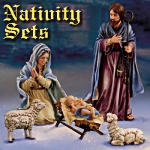

|
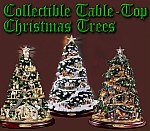
| 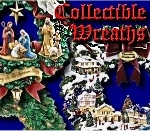
| 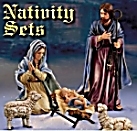
| 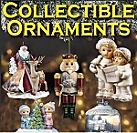
| 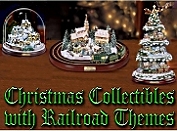
|
Note: Family Christmas OnlineTM is a trademark of Breakthrough Communications(tm) (www.btcomm.com).
All information, data, text, and illustrations on this web site are
Copyright (c) 2006, 2007, 2008, 2009, 2010, 2011, 2012, 2013 by Paul D. Race.
Reuse or republication without prior written permission is specifically
forbidden.
Family Christmas Online(tm) is a participant in the Amazon Services LLC Associates Program, an affiliate advertising program designed to provide a means for sites to earn advertising fees by advertising and linking to amazon.com.
For more information, please contact us
| Visit our affiliated sites: | ||||||
| - Christmas Memories and Collectibles - | ||||||
 |

|

|

|

|

|
|
| - Family Activities and Crafts - | ||||||
 |

|

|

|

|

|
|
| - Trains and Hobbies - | ||||||

|

|

|  |

|
 |
|
| - Music - | ||||||

|

|
 |

|

|
 |
|